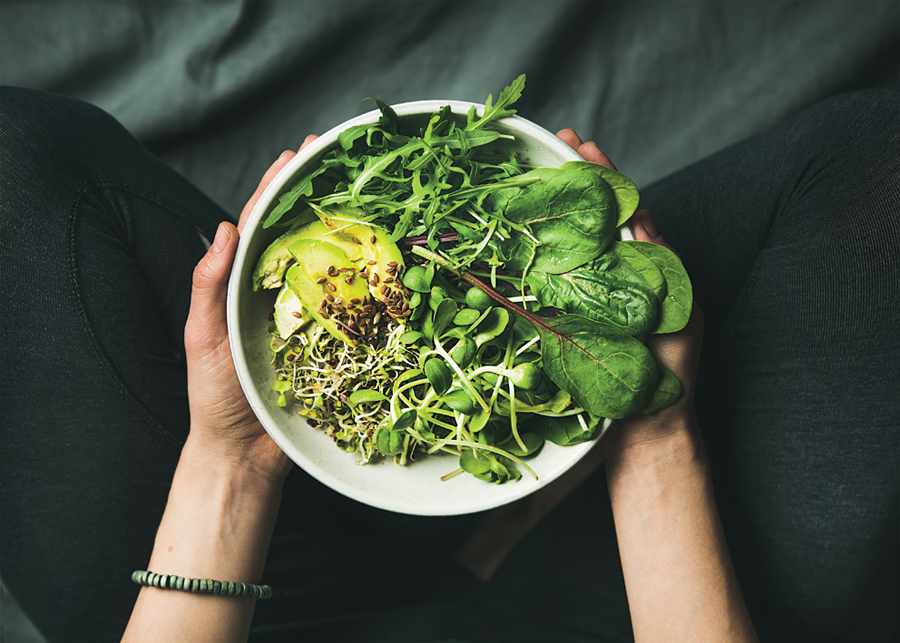RIYADH: The Saudi appetite for veganism as a lifestyle choice is taking off among the Kingdom’s youth, fed by prominent advocates of the practice.
Concerns for health, animal rights and the environment are all proving to be key factors in motivating Saudis to change their diets and stop using animal products.
Among the most notable influencers is Khaled bin Al-Waleed, son of billionaire Prince Al-Waleed bin Talal, who in January last year pledged to open at least 10 vegan restaurants in the Middle East by 2020.
With increasing numbers of shops and restaurants in the Kingdom now offering a wider range of vegan and vegetarian products, the shift from meat is becoming all the more palatable for many young Saudis.
Health is the first of three main drivers, with publicity about the growing problem of obesity in the country encouraging many people to make better food choices.
Cutting out meat and animal products in protest over unethical practices in the livestock trade is another reason for the rise in veganism, along with fears about damage to the environment, with livestock farming seen as contributing to greenhouse gas emissions, water and land degradation.

Saudi shops and restaurants now offer a wider range of vegan products. (Shutterstock)
However, being vegan, or even vegetarian, can still be a difficult move to make for some.
Banan Al-Sultan, an optometrist and yoga enthusiast, has just got back into veganism after an aborted attempt to switch eight years ago.
“I was vegan for six months back in 2011, but I just couldn’t do it any longer than that. There were no options for me at any restaurant I went to except maybe for French fries or a side salad,” she told Arab News.
“Non-dairy milk was more like non-existent milk in any supermarket, and veggie burgers or vegan sausages were things I’d only heard about but never seen, like unicorns or mermaids.”
As the larger supermarket chains in Saudi started stocking vegan and vegetarian items, Al-Sultan began to muster up her old enthusiasm and has now successfully maintained a vegan diet for three months.
Loulwa Almarshad, a 28-year-old translator in Riyadh, told Arab News that being vegan was nowhere near as difficult as people might think.
“It might have been hard at first, but not so much now. There’s a lot more awareness these days, and the number of vegans worldwide is increasing, which creates more demand for vegan products both in restaurants and supermarkets.”
Most Saudi food stores now stock a wide variety of veggie options, including non-dairy milks such as almond, soy, and coconut, vegan butter and cheese, meatless burgers and sausages, and even treats like cookies, gummy candies, and ice cream.
Restaurants in the Kingdom are getting on board too, with burger outlets such as Johnny Rockets and Burgerfuel offering meatless patties, Jeddah superfood chain Boga introducing vegan salads and tofu sandwiches, and famous vegan-friendly places like Urth Caffe opening up branches throughout the Kingdom.
Yet Almarshad and Al-Sultan still believe that many Saudis remain skeptical about veganism.
“As a society, we Saudis love meat, which is understandable as meat has throughout history been a symbol of wealth and shows that someone can feed themselves and their family,” Al-Sultan said. “But times are changing, and if you can’t adopt our lifestyle, you can at least respect it.”
Almarshad said that the most difficult part of being vegan in Saudi Arabia was the attitude of society toward them. “I don’t mind answering people’s questions if they ask nicely, but at the end of the day, we’re just normal people. When the questions get invasive or offensive, it’s only natural that we won’t want to answer them.”













